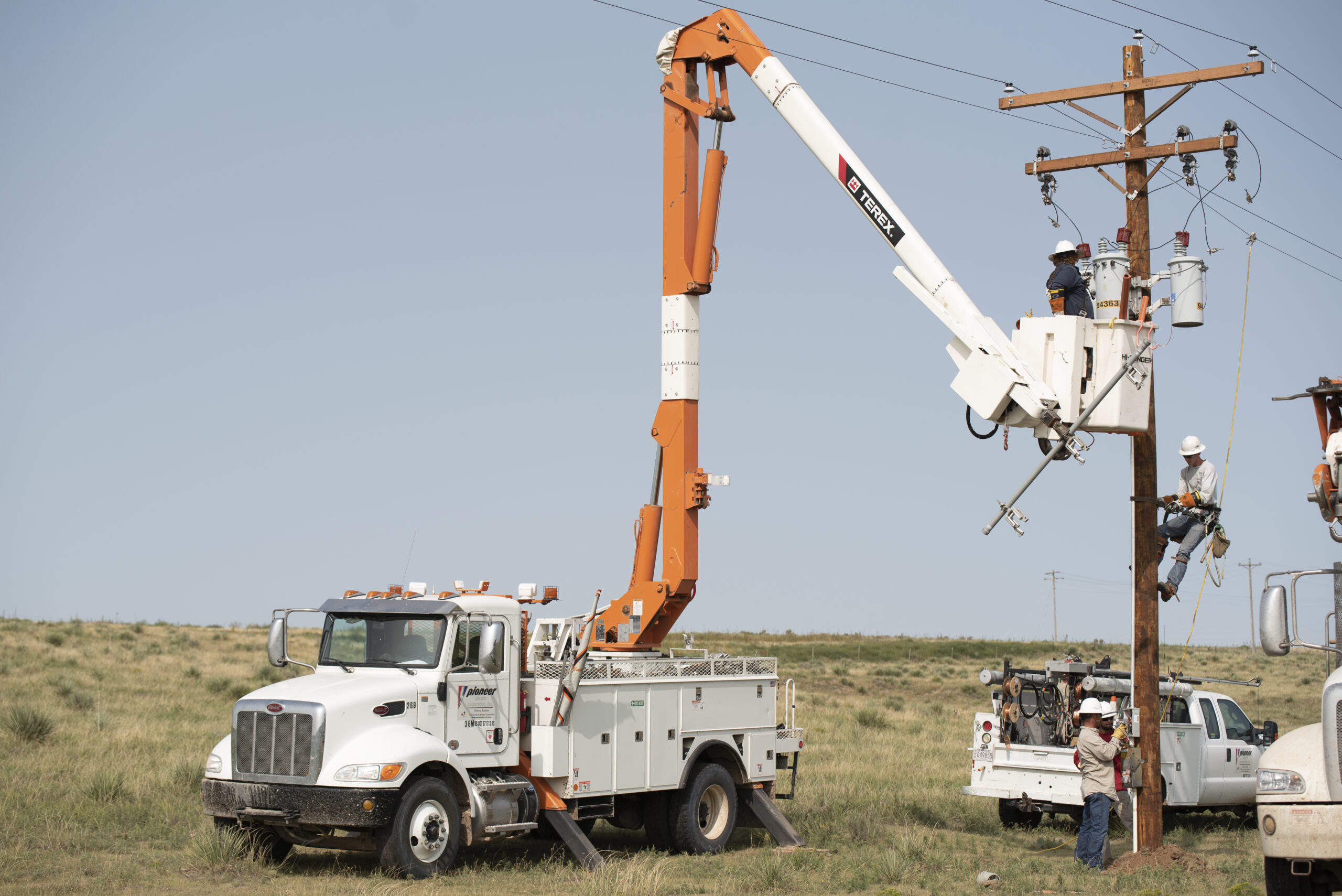NOTICE OF PUBLIC HEARING
The Pioneer Electric Board of Trustees will hold a special public meeting to discuss proposed changes to its Renewable Energy Program Rider (23-RE) on Dec. 18, 2024, at 8:30 a.m. at the cooperative’s headquarters at 1850 W. Oklahoma Avenue in Ulysses, Kansas. Signage will be in the cooperative’s lobby to direct members to the meeting location.
23-RE outlines our Renewable Energy Program including our Community Solar program for residential members. Pioneer Electric’s board members will review a proposed reduction of the monthly Renewable Charge for the community solar program from $5 per 125 kilowatt-hour (kWh) share to $4 per 125 kWh share. Members can see the proposed edits here.
What is Residential Community Solar?
The program provides residential members an option for solar participation for both renters and homeowners who may have inadequate solar irradiance on their roof (too much shade), or those who do not want the ownership hassles associated with rooftop solar such as roof damage and ongoing maintenance costs. The Community Solar program is a part of Sunflower Electric Power Corporation’s renewable energy rider, and it’s administered on a retail level by Sunflower’s member cooperatives. Pioneer is a member-owner of Sunflower and Sunflower supplies Pioneer with wholesale power generation and transmission services.
How does the program work?
Sunflower generates solar energy at its Johnson Corner solar facility near Johnson City in Stanton County, Kansas. Sunflower transmits wholesale energy from its Johnson Corner solar facility to Pioneer via the electric grid. Pioneer then delivers energy to its members through the electric distribution system. Residential members of Pioneer can choose to subscribe to the Community Solar program at a current cost of $5 per share per month. Community Solar subscriptions will be in addition to members’ monthly energy bills. We encourage members to visit here or talk with a customer service representative for additional information regarding the program

